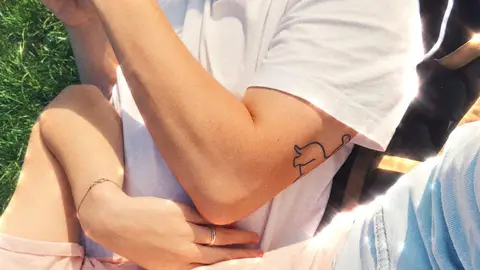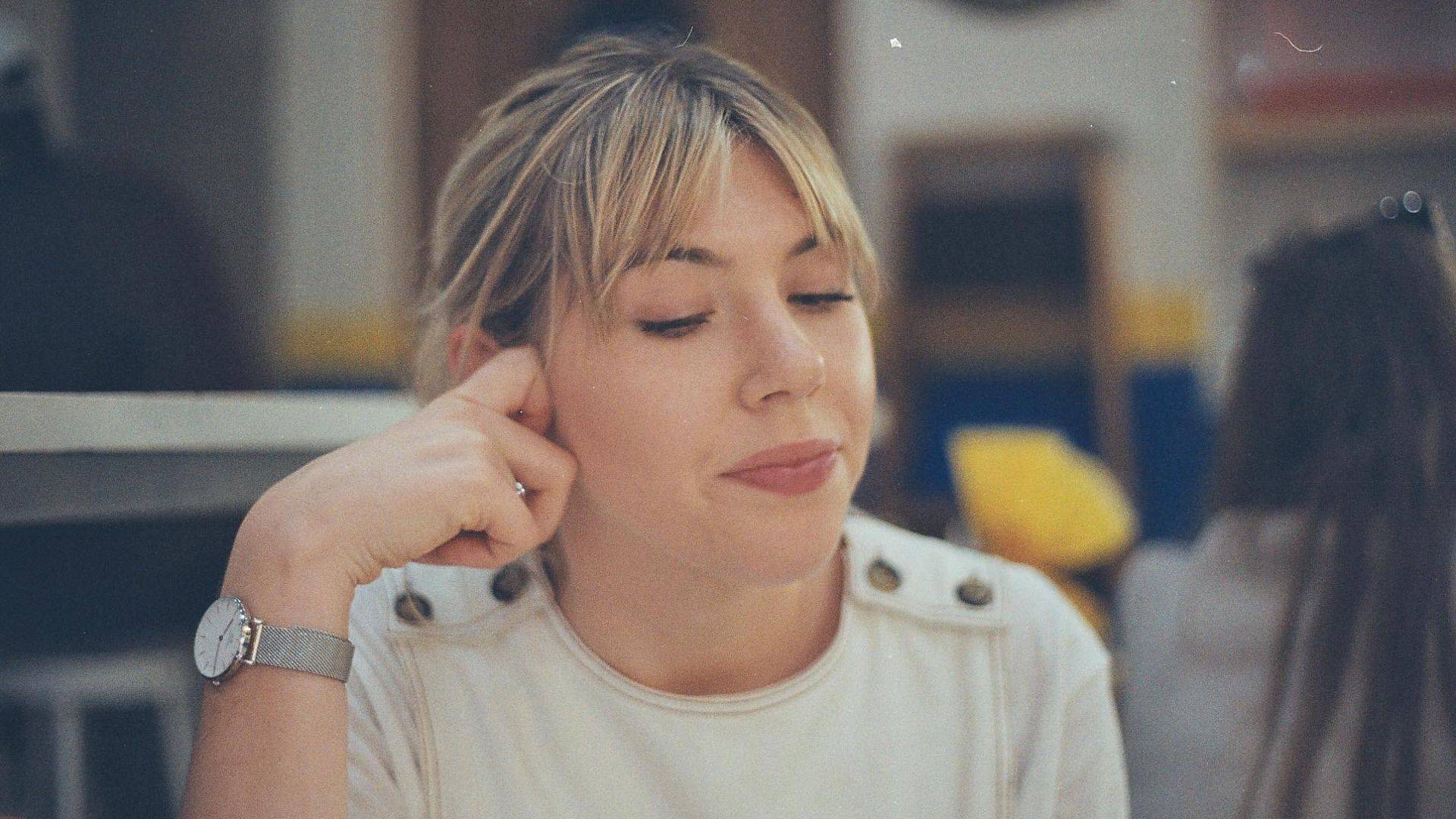'How Coronogamy (Coronavirus-Induced Monogamy) Has Changed My Sex Life'

I’ve been polyamorous for nearly 20 years. Non-monogamy is all I’ve known, and normally I don’t like to define things in a hierarchy, with a primary partner and secondary partners. To me, part of the point of having open relationships is that you leave the paddock unfenced. Things go how they go.
But I live with my girlfriend and no one else, so once the lockdown started in Victoria, we found ourselves in social isolation together. At first, I found it confronting to be thrust into what felt like forced monogamy. 'Coronogamy,' I called it – coronavirus-induced monogamy.
Before lockdown, I was seeing a few people but all quite sporadically. I figured if I wasn’t even going to spend time with my fam, then it didn’t make sense to get together with relative strangers. My girlfriend has an ongoing lover who she normally sees pretty often but they also stopped meeting up in iso.
For sure, I missed the specific thrill of these encounters, of foreign bodies in orbit all fresh and keen. But it wasn’t just that. There have been other times in my life when I’ve happily been dating just one person, but it was never under the stricture of monogamy. This felt different and inorganic. Though ultimately, we decided ourselves that we wouldn’t see other people for a bit, I resented feeling like the state had steered me into precisely the kind of relationship hierarchy I’d spent so long trying to avoid.
There’s a lot of advice out there for people who are ‘opening up’ their relationship – not so much, it seems, for what to do if you’re ‘closing down’.
One of the reasons I decided to be polyamorous as a precocious and overly online 15-year-old was because I felt my friendships weren’t less important, or even categorically different, from my romantic relationships. Monogamy seemed like a false and arbitrary way to classify attraction, intimacy and commitment. But now we’re asked to divvy our entire worlds into the essential and inessential. That’s fair but still uncomfortable.
I’ve been feverishly following news about the pandemic since January, reading story after tragic story, so I take the health precautions very seriously. I’m not in any doubt about the severity of this situation. But nonetheless, as a queer person of colour who relies on a lot of different people for care and support, I winced at how government responses reinforced the nuclear family as the primary organising unit of society. It made me think of that poster by Deborah Kelly and Tina Fiveash that depicts a retro family eating sandwiches: ‘Hey hetero, when they say family, they mean you!’ Very quickly, we saw how lockdown laws targeted communities that are already overpoliced while wealthy white neighbourhoods received few fines.
It feels very much like some ways of looking after each other are more acceptable than others. So that’s the awkward context in which I am effectively experiencing monogamy for the first time. There’s a lot of advice out there for people who are ‘opening up’ their relationship – not so much, it seems, for what to do if you’re ‘closing down’.
For me it was important to be conscious of how the lockdown was affecting my emotions and our dynamic. As well as having little contact with other people, isolation meant that my girlfriend and I were spending a lot more time together because she was working from home. I need hefty doses of solitude, both as a writer and just as a person, so I had to remember to set aside alone time. Organising mini-dates at home helped us be more deliberate about the time we were spending together and created a sense of occasion within the amorphous sludge of isolation.
There are definitely times where I’ve relied on a variety of lovers and others to anchor me to my body. That’s not possible now.
While time was disintegrating, space was also warped. Everywhere outside my flat seemed more or less equidistant, so I took that as a sign that I should put more effort into my neglected transnational friendships. I also started sexting friends and strangers, turning off the geolocator in apps because it didn’t matter anymore whether someone was in Manila or Milan.
I’m not really a sender of nudes (though I happily receive them) but I found a lot of pleasure and intrigue in text-based flirting. It felt like a wormhole into the way I used the internet when I was a teenager in the early 2000s – anonymous, disembodied, and intensely intimate. I’m often nostalgic for that kind of Livejournal-era sentimentality so that was really appealing. As a genderfluid person, I relished how cybersex let me build my body in words, and I discovered that the lockdown could be weaponised in all sorts of fun and kinky scenarios. It’s a good time for anyone who gets off on withholding.
But quarantine can also trigger its own special brand of dissociation and dysphoria. When everything is unreal and endlessly deferred, it’s all too easy to ghost on yourself. Some days I seem to just disappear. The boundary between my body and the internet is dissolving more with each day and despite this situation originating in a virus, it seems that if I stay in my room there’s nothing that will force me to confront being flesh.
My friend and fellow polyam queer, the comedian Lisa-Skye, broke up with a lover of 7 years during the lockdown. "It’s a weird fucking thing because you can’t do that stuff, healthy or otherwise, that you might normally do," she told me. "You can’t go on a few inconsequential dates or bang a random. You have to sit with the decision."
There are definitely times where I’ve relied on a variety of lovers and others to anchor me to my body. That’s not possible now. The best and hardest part of this has been having all the time in the world to work out how to be my own primary.
This article was written by Jinghua Qian. You can read more of their work here.
Main Image Credit: Anastasiia Vedmedenko via Unsplash





